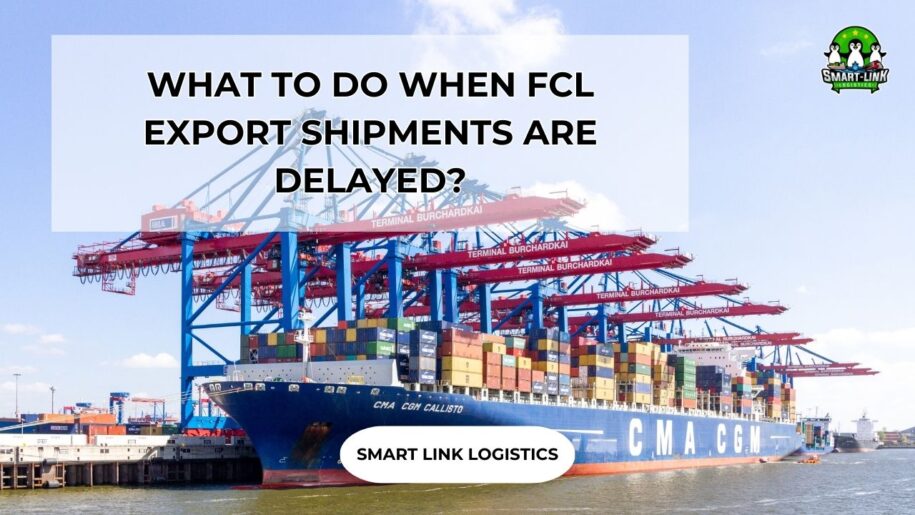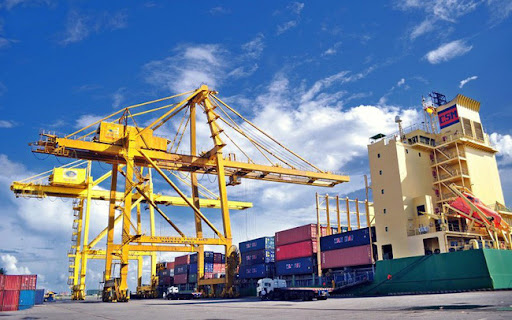
WHAT TO DO WHEN FCL EXPORT SHIPMENTS ARE DELAYED?
When FCL export shipments are delayed, businesses not only face schedule disruptions but also incur additional costs. So, what are these costs, and how can they be minimized? Let’s explore the details in the article below.
1. Container Yard Storage Fees (Demurrage)
Demurrage fees arise when containers remain at the port yard beyond the free storage period. This period is typically agreed upon in advance with the shipping line or port, and exceeding it will result in additional charges.
Advice: Closely monitor schedules and ensure goods are shipped as planned to avoid demurrage fees.

2. Warehouse Storage Fees (Detention)
Detention fees apply when containers are transported to the warehouse but are not returned to the port yard within the stipulated timeframe. This situation often occurs when businesses face delays in arranging transport or issues in handling goods.
Advice: Develop detailed transportation and goods-handling plans to ensure containers are returned on time.
3. Port Storage Fees
Port storage fees are incurred when containers are held at the port yard beyond the allowable period. These fees are charged by the port and are calculated based on the number of days the containers remain there.
Advice: Work closely with the shipping line and port to promptly address any arising issues and minimize port storage costs.
4. Vessel Change or Container Transfer Fees
If a shipment is loaded under the name of the original vessel but fails to depart on time, the business will need to process vessel change or container transfer procedures. The cost will vary depending on the container’s location and condition.
Advice: Regularly update vessel schedules and coordinate with shipping lines in advance to reduce risks.
5. Penalty Fees from Customers
When export shipments are delayed, businesses may face contractual penalties from customers, including late delivery fines or compensation for losses caused by delayed goods. This not only results in financial damage but also affects the company’s reputation.
Advice: Inform customers early if there’s a risk of delays and work on timely alternative solutions.
6. Changes in Freight Costs
Delays causing shipments to move to a new vessel schedule may lead to increased freight rates, especially during peak seasons or when the market fluctuates. This directly impacts the pre-planned budget.
Advice: Monitor market trends closely and book vessel schedules early to secure stable freight rates.
How to Minimize Risks When FCL Shipments Are Delayed?
- Plan in detail: Ensure shipment schedules are realistic, with sufficient time for related procedures.
- Maintain close cooperation with shipping lines and ports: Keep updated to avoid delays.
- Prepare contingency plans: Always have a backup plan to address unexpected issues.
In conclusion, delayed FCL export shipments not only cause inconvenience but also result in unwanted costs. Businesses must proactively manage and coordinate to minimize these risks. If you’re seeking a reliable logistics partner to support and optimize your export process, Smart Link Logistics is your trusted choice.
If you need legal support or assistance with customs procedures for import and export, contact Smart Link Logistics for prompt and efficient consultation. With over 14 years of experience in the logistics field, we are proud to be your partner throughout your journey.
Hotline: + 84 935 766 039 to know more about our services

If you require assistance with international import and export of goods, please contact our team at Smartlink Logistics. We are available to provide you with professional guidance on our services and the necessary customs procedures.
SMART LINK: BEST SERVICE BEST YOU


































